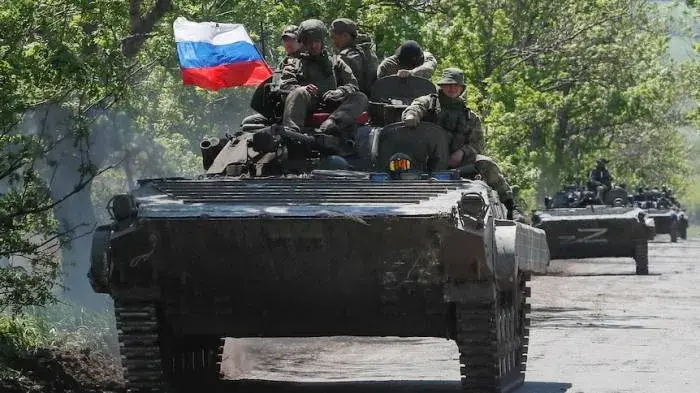Ultranationalist George Simion secured 40% of the vote in the controversial re-run, nearly 20 points ahead of his closest challenger, government-backed Crin Antonescu.

The candidate may have changed, but the far-right remains on top: five months after the surprising annulment of the first round of Romania’s presidential election, the country confirmed its nationalist shift in a new vote held this Sunday.
Anger and frustration weigh heavily on this Eastern European NATO member of 19 million people, whose November elections were annulled over suspected Russian interference.
Ultranationalist George Simion achieved a sweeping victory on Sunday with 40% of the vote in the controversial repeat of Romania’s presidential election, becoming the clear favorite to win the presidency in two weeks, with over 90% of ballots counted.
Trailing the leader of the Eurosceptic and nationalist AUR party were ruling party candidate Crin Antonescu and independent Nicusor Dan, the current mayor of Bucharest, who competed for second place and a spot in the decisive runoff on May 18. In the final stretch of the count, Dan overtook Antonescu by a few thousand votes, finishing close to 21% and securing his place in the runoff.
Around midnight local time (22:00 GMT), Antonescu conceded defeat before the press and indirectly urged his supporters and other voters to support Dan in two weeks. The 55-year-old mathematician announced his advance to the second round via Facebook.
Behind them came former Prime Minister and now populist Victor Ponta, with 13.5% of the vote—his electorate now considered key to determining the outcome of the runoff.
After learning of his likely victory, 38-year-old nationalist-populist Simion addressed his followers in a recorded message from his office. “Today we are making history. We are heading for an exceptional result, far beyond what the system’s televisions are showing. Congratulations. You are the victors. Today the Romanian people have spoken. It is time they are heard,” he said.
“I’m here to restore constitutional order in Romania. My sole objective is to return to the Romanian people what has been stolen from them,” he added, referring to the annulled November elections.
Eleven candidates competed in the first round. While the presidency is a ceremonial role, it carries significant influence in foreign policy.
The November victory of Calin Georgescu—a former senior official accused by opponents of being pro-Kremlin—sparked concern in Western Europe and plunged Romania into political crisis.
The Constitutional Court later invalidated that first round and barred the sexagenarian from running again, following a massive campaign on TikTok that raised suspicions of Russian interference.
He was replaced by George Simion, who had finished fourth in November. Both men appeared together on Sunday at a polling station in Mogosoaia, near Bucharest.
Many Romanians, like 37-year-old driver Robert Teodoroiu, hope their vote will count this time. “I’m trying my luck again,” he told AFP on a street in the capital.
Simion, who claims to be “more moderate” than Georgescu, shares his disdain for what he calls the EU’s “unelected bureaucrats in Brussels,” whom he accuses of meddling in Romania’s elections.
He has denounced Russia, but opposes sending military aid to Ukraine—a neighboring country—and wants to reduce assistance to Ukrainian refugees.
A passionate supporter of Donald Trump, he is often seen wearing a “Make America Great Again” cap and hopes to become Romania’s “MAGA president.”
This message resonated with 67-year-old Stela Ivan, a resident of the small southern town of Alexandria.
After decades of domination by the same parties since the fall of communism, she now “wholeheartedly” hopes that a far-right president will bring change to Romania.
On Sunday, Simion promised that if he becomes president, he will bring “Calin Georgescu to power,” whether through “a referendum, early elections, or a parliamentary coalition that would appoint him prime minister.”
Romania’s Constitutional Court annulled the original election process that began on November 24 after identifying strong foreign interference—mainly from Russia—via social media in support of Georgescu.
After Georgescu was banned from the re-run by court order, Simion declared himself the “political heir” of the pro-Russian ultranationalist.
Thousands have protested in recent months, denouncing what they describe as a “coup.” Even U.S. Vice President JD Vance criticized the annulment and urged officials to “listen to the voice of the people.”
To avoid a repeat of last year’s chaos, authorities took preventative measures and worked with TikTok, which pledged its commitment to a “fair and transparent” election.
Sunday’s elections are seen as crucial to the political future of the country. The presidency in Romania holds significant powers, especially in foreign policy and national security.
The European Union (EU), NATO—of which Romania is a member—and other Western partners are watching the elections with particular concern, as they could result in the election of a Eurosceptic populist opposed to Western support for neighboring Ukraine amid the Russian invasion.
Keep Independent Journalism Alive
In a world flooded with noise, independent journalism is more vital than ever. We work hard to bring you clear, accurate, and unbiased international news — free from corporate or political influence.If you believe in the power of honest reporting, please consider making a donation. Every contribution, big or small, helps us stay independent and keep the world informed.
Support us via PayPalYour support makes a difference.

